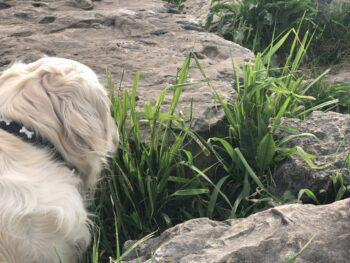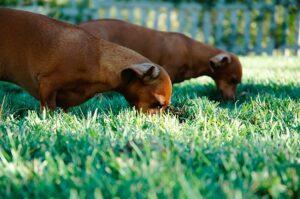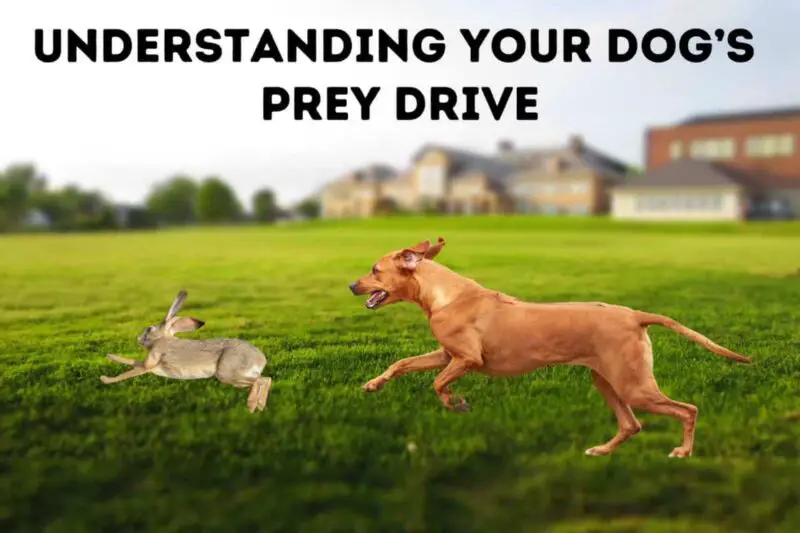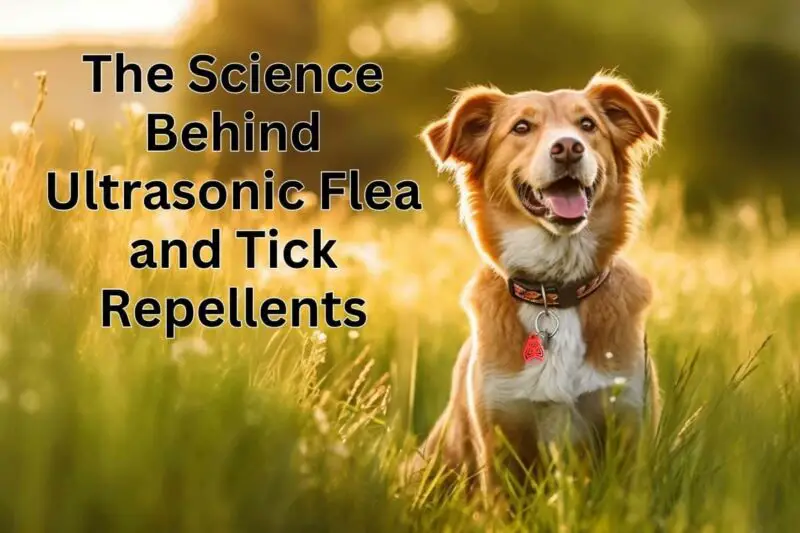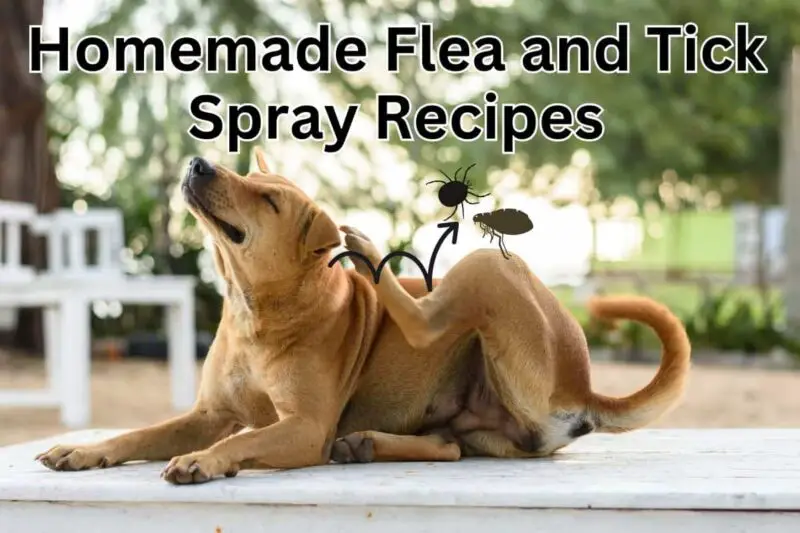Why Do Dogs Eat Grass? When to Worry
If your dog is frantically eating grass, he may be nauseous or have an upset stomach. Dogs that frequently chew grass may be anxious, nutrient deficient, bored or looking for pleasure, taste and stimulation. Others self-heal by looking for medicinal properties in certain grasses. When should you worry?
Is it Common for Dogs to Eat Grass?
The majority of dogs eat grass. In fact, 79% of dog owners have noticed their dogs noshing on greens at one time or another. One of our dogs used to bark loudly at the back door just to race outside and frantically eat mouthfuls of grass – nothing could distract him. Another dog took a casual detour on our walks to snatch up a taste of decorative grass from a neighbour’s yard (oops!). He took his time to chew it thoughtfully and peacefully. Another dog stopped eating grass on a regular basis once we began supplementing with spirulina – a nutrient-dense blue-green algae. All had very different reasons for eating grass.4 out of 5 dog parents report that their dog eats grass.
Should I Worry If My Dog Eat Grass?
Does your dog graze contentedly on grass or frantically eat as much as possible? Is there a sudden change in his type of grass eating? The way your dog eats grass could be a clue as to whether to suspect an underlying health issue or plan a vet visit. There are several common theories about grass eating, from stomach problems or a nutritional deficiency to a sign of boredom and anxiety. The key thing to remember is that all behaviours have meaning. What is your dog trying to tell you? Should you be worried? Here are five potential reasons your dog is munching on greens and whether you should worry.All behaviours have meaning – look for the reason behind your dog’s grass eating
Top Five Reasons Your Dog is Eating Grass
- Nutrient Deficiencies
- Stomach Upset or Early Digestive Problems
- Anxiety/Pica
- Pleasure
- Your Dog’s Innate Wisdom
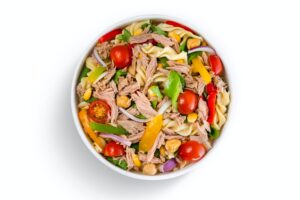
1. Nutrient Deficiencies
We live in a world where the quality of our food is becoming nutrient-deficient and filled with added hormones, chemicals and genetically modified fillers. Studies that measure soil-based nutrients have found some disturbing trends over the past several years:- vitamin C levels dropped 30%
- vitamin A levels dropped 21%
- iron levels dropped 37%
- calcium levels dropped 27%
What Nutrients Could Your Dog Need If He Eats Grass?
In many cases, your dog is looking for one of more of these nutrients to meet a nutritional need:- fibre
- greens
- minerals
- healthy bacteria
Fibre
Grass is the basis of many animals’ diets. Take cows for example. Cows have the ability to digest every bit of nutrient out of their grasses, including cellulose (the main substance of plant cell walls). But, since dogs can’t digest the cellulose in grass, it gets used as bulk or fibre. Fibre could be one deficiency your dog is looking to correct.How Do I Know if My Dog Needs Fibre?
- check the quality and quantity of his feces. Constipation or watery stools may indicate the need for more fibre
- see if her anal glands are bothering her. Anal glands naturally secrete a small amount of scented fluid to communicate with other dogs (this is why dogs are interested in each others’ butts and poops). If she is scooting her butt along the ground, licking her rectum, straining or the glands release a whole lot of scent (it’s not pleasant) there’s a good chance she needs more fibre
- if you have a senior dog, a high-fiber diet may be a good idea to keep her bowels moving well as she ages
What’s a Good Source of Fibre?
Adding 1-2 tsp of organic pureed pumpkin to meals is a good source of fiber and is effective in normalizing poop that is either too loose or too hard. See if adding a bit more fibre decreases your dog’s grass eating behaviour.Greens
Green vegetables have a plethora of vitamins, enzymes, antioxidants and cancer-fighting nutrients. Grass and green vegetables also have another thing in common – chlorophyll. Chlorophyll is a pigment that gives plants and algae their rich green colour. The molecular structure of chlorophyll is very close a dog’s hemoglobin – part of red blood cells that helps to carry oxygen throughout his body.
Your dog may be eating grass to replenish his chlorophyll, thereby boosting the function of his red blood cells. If your dog can’t choose from fresh green vegetables that are safe for him, he’ll go for the next best thing -grass, even though it’s harder to digest.
Chlorophyll helps with several other body processes, so your dog may be telling you he is trying to help his body to:
Chlorophyll is a pigment that gives plants and algae their rich green colour. The molecular structure of chlorophyll is very close a dog’s hemoglobin – part of red blood cells that helps to carry oxygen throughout his body.
Your dog may be eating grass to replenish his chlorophyll, thereby boosting the function of his red blood cells. If your dog can’t choose from fresh green vegetables that are safe for him, he’ll go for the next best thing -grass, even though it’s harder to digest.
Chlorophyll helps with several other body processes, so your dog may be telling you he is trying to help his body to:
- Protect his cells from damage
- Prevent cancer cells from growing
- Detoxify his liver
- Heal wounds
- Build and strengthen his immune system
- Fight infections
- Break down kidney and bladder stones (calcium oxalate)
- Heal his digestive system
What are Good Sources of Greens/Chlorophyll?
Add these safe organic green vegetables to make up 10-25% of your dog’s meal. See if a few weeks of healthy greens help with his grass obsession. Lightly cook or steam OR mince these raw vegetables to help him digest properly:- Broccoli
- Kale
- Lettuce or spinach
- Green beans
- Parsley
Minerals
Grass contains potassium, nitrogen and phosphorous – minerals your dog needs. Dogs typically get enough minerals through a healthy fresh whole foods diet, but it’s possible he may be seeking to correct an imbalance.What are Good Sources of Trace Minerals?
Ensure your Fur Soul is getting important minerals by including the following fresh foods in your dog’s diet:- chicken, turkey, halibut, sardines, beef, rabbit, duck, eggs
- organ meats like liver, lungs, kidney
- spinach, broccoli, kale, spirulina, chlorella, kelp and alfalfa
- ground flax and pumpkin seed
- bone broth
Healthy Bacteria: Prebiotics and Probiotics for Your Dog
Some animals (like cows) eat grass for the healthy bacteria that cling to it. The bacteria then ferments in their stomachs and creates a nurturing environment for healthy digestion and immunity. Immunity in the stomach? Yes – we know that a large part of the immune system starts in the gut, so eating grass for its healthy bacteria makes good sense. Clinical and research evidence is linking several chronic disease to changes to the stomach’s microbiome (bacterial environment). Processed and low quality food alter the bacterial environment and can allow bad bacteria to take over and begin damaging cells. This can lead to leaky gut and conditions like allergies, diabetes, dermatitis, yeast infections and autoimmune hypothyroidism.What Foods Help a Healthy Gut?
- prebiotics build a nurturing environment for healthy bacteria. Good sources are bananas and fresh garlic.
- probiotics help to shift pH (acid-alkaline balance) and fight pathogens. Good sources are found in fermented foods like unflavoured kefir, raw goat milk, unflavoured yogurt, cheese and sauerkraut.
What Can I Do?
If you’re feeding your dog a processed, commercial dog food, consider shifting to a whole foods raw or cooked diet rich in nutrients. A Holistic Canine Nutritionist can help. If you’re already feeding your dog a raw or cooked whole foods diet that includes these healthy foods and supplements, and his grass consumption is still high:- consider reviewing your dog’s diet with a Holistic Canine Nutritionist or Holistic Vet
- consider adding a canine multivitamin or other supplement (check with a Holistic Vet or Natural Pet Care Specialist)
Your dog is telling you what he needs. Let’s listen.
2. Stomach Upset and Digestive Problems: Is Your Dog Frantically Eating Grass?
If your dog is eating grass frantically, it could be because his stomach is upset. Frantic grass-eating is usually an attempt to stimulate the vomiting reflex in order to expel something toxic. Your dog might be eating grass because of nausea or stomach upset if:- he eats grass frantically
- he vomits shortly after
- he has diarrhea (in combination with these other signs)
- he has recently lost weight
- he is not eating
- he’s licking his lips
- he has bloody stool
- he’s fatigued or lethargic
What Should I Do If My Dog Is Frantically Eating Grass?
- if your dog is experiencing these symptoms, it’s a good idea to see a vet to help with acute or emergency situations.
- be patient. Your dog is acting on instinct and probably won’t be able to stop eating on your command. Direct him to a clean, pesticide-free grassy area if possible, or distract him
- there are homeopathic and herbal remedies that can relieve nausea as well as some over the counter medicines like pepto-bismal, however nausea is a sign of something that’s wrong, so check with a health professional first before simply suppressing the symptom with a drug.
- diet changes can help improve your dog’s upset stomach in the longer term. Make sure a fresh whole food diet includes prebiotics and probiotics for a healthy gut.
- if dogs vomit, it’s usually best to withhold their regular food for a meal or two and then gradually introduce small, frequent amounts of cooked rice with a tablespoon of pumpkin puree and some bone broth. Always keep fresh water available for your dog.
Nausea isn’t the most common reason dogs eat grass.Although your dog may not be sick to his stomach, his stomach might still be sick.
Frequent Stomach Upset May Be An Early Sign of Illness
Diseases don’t develop overnight. They can begin with tiny microscopic or cellular changes that aren’t detected with conventional blood tests and exams. And this can begin years before signs of illness are troubling enough for a diagnosis. Pay attention to what your dog is trying to tell you by his grass-eating behaviour. Grass eating can be your dog’s way of telling you something is happening at a cellular or energetic level. Early levels of inflammation from cellular damage may be starting to occur in the digestive track. Processed diets and stress can cause microscopic damage to cells that isn’t severe enough to be diagnosed as disease, but can lead to gastrointestinal issues like inflammatory bowel disease, or allergies and auto-immune diseases.Disease starts on an energetic and cellular level before we notice changes through lab tests and clinical signs – but your dog knows.Trust your dog’s innate wisdom and check it out with a Holistic Vet or Holistic Dog Care Specialist. Common approaches include looking for food sensitivities, analyzing your dog’s diet, performing blood tests, looking for intestinal worms and even using energy medicine like Reiki to identify early energetic imbalances.
3. Pica or Anxiety
Pica is a term that describes the ingestion of non-food items or foreign objects. Grass is kind of a food, but kind of not. Pica can be based in psychological distress or nutrient deficiencies; since we’ve already addressed nutrients, let’s talk mental health. One of our beautiful Golden Retrievers ate everything in sight. Despite a balanced diet, he would eat socks, toys, bags, jars of coconut oil, tree roots, boxes and even drywall. It created immense anxiety for the household and much distress for this lovely Fur Soul. Frantic grass eating was the first sign that alerted us to the likelihood that he had swallowed something dangerous. It’s possible that grass eating is a comfort mechanism, much like nervous people chewing their finger nails or twirling their hair. Dogs get bored, lonely and anxious and sometimes grass eating is their coping strategy. Your dog may be eating grass due to anxiety if he:- shows signs of hiding, trembling, restlessness, panting, pacing
- has nervous bladder accidents or diarrhea
- licks or bites himself
- chases his tail or circles excessively
- spends more than a few hours a day alone
- shows signs of separation anxiety
What Can I Do If My Dog Is Anxious?
- try energetic medicine to soothe nervous systems, such as Reiki, homeopaths, herbals
- ensure his diet includes clean proteins, vegetables, omega-3 oils, natural probiotics, probiotics, vitamins and minerals
- try adding a few tablespoons of brewed organic chamomile tea to a separate bowl of water
- consult a Holistic Vet or Holistic Pet Care Specialist
- increase physical exercise
- provide mental stimulation, or a puzzle game such as a cookie ball
- try making some homemade lavender dog cookies to soothe your stressed pup
- consider adding CBD (cannabidiol) alone or to a homemade CBD dog treat recipe
4. The Pleasure Principle: Is Your Dog Eating Grass for Fun?
Dogs usually don’t usually engage in behaviours that have absolutely no purpose. If your dog isn’t eating grass to meet a nutritional or health need, it’s possible that he’s doing it just for fun and mental stimulation! Like us, dogs find ways to engage in pleasurable activities and maybe your little nosher is simply admiring the smell, texture and taste of grass. We know that herbivores (plant eating animals) have more taste buds than carnivores (meat eaters). Since dogs enjoy a varied diet of meat, organs, vegetables and fruit, they could be chowing down on young, sweet grass for the pure pleasure of it!
Your Dog May be Nibbling for Happiness If He:
- doesn’t show signs of nausea or disease
- doesn’t show signs of anxiety
- eats a fresh whole food diet with meat proteins, organs, vegetables, probiotics and probiotics
- is otherwise healthy
What Can I Do If My Dog is a Happy Grass Nibbler?
- trust that your dog is enjoying himself – a little grass here and there is just fine
- keep all grass free of lawn treatments, pesticides, ticks and other possible dangers
- enjoy the moment with him -it might be time for a picnic together with your fur baby!
5. Your Dog May Be Trying to Heal Himself
There is something to be said for a dog’s ancestral wisdom. He knows his body better than anyone, and uses hundreds of years of intuition to seek what he needs in order to heal himself. Between 11% and 47% of wolves and wild dogs eat grass. Your dog may simply be connecting to his ancient instincts when scavenging for greens. Dogs and their predecessors used to be able to roam freely, choosing specific herbs, flowers, roots and plants to soothe their ills. Our Canine Herbalist will often place several herbs in front of a dog to see which one(s) he gravitates toward. Dogs are brilliant and the herbs they choose can give us a glimpse into the earliest beginnings of illnesses like infections, bladder and kidney stones, anemia, cell damage and even cancer.Although your dog may not be sick to his stomach, his stomach might still be sick.
Your Dog Knows About The Medicine in Grasses
One thing many people overlook is the synergistic qualities of medicinal herbs, including grass. Synergy is about the whole plant being more powerful and effective than each of its components, taken separately. Western science deconstructs whole plants into components to study and turn them into single pharmaceuticals. For example, the natural pain reliever willow bark was deconstructed to develop the common pain reliever and blood thinner known as aspirin. Natural or traditional medicine appreciates the synergistic effects of the hundreds of individual components that work together in each plant to make it medicinal – the whole is truly more than the sum of its parts. We may not have the complete answer yet, but your dog knows. Trust in his wisdom.Your dog knows. Trust in his wisdom.
Problems with Eating Grass
Whether your dog is a happy grass nibbler or a healer-in-training, make sure he’s doing so safely.Toxic Pesticides
We have enough exposure to toxic substances simply by breathing and living. Make sure your grassy areas are pesticide-free and keep your dog strictly off recently sprayed grass. Ingesting chemicals can lead to mouth and throat burns, damage to his esophagus, stomach, liver and kidneys.Parasites
Besides ingesting pesticides and chemicals, your dog may be plucking dirt from the ground along with the grass. This exposes your dog to potential intestinal parasites like hookworms or roundworms that contaminate the grass from feces left by other animals. The good news is, a dog’s gut health can actually benefit from the natural bacteria and fungus found in chemical-free grass and plant material. A healthy dog with happy immune and digestion systems is better able to ward off many types of microbial infections. If your dog experiences any of these symptoms, consider a visit to a Holistic or Conventional Vet to rule out parasitic infections or treat them with antimicrobial herbs:- loss of appetite
- weight loss
- lethargy
- bloody stool
- diarrhea
Grass Seeds
Over-seeding is a common strategy to grow a lush lawn. However, accidentally ingesting grass seeds can cause your dog serious pain if they get stuck in their skin, mouth or throat while he is grazing.Poisonous Plants and Grasses
It’s a good idea to know which plants and grasses may be harmful to your dog. Ivy and many flowering plants like lilies, tulips and daffodils can be toxic if ingested.Bottom Line
In some cases, grass eating may be purely pleasurable, but more often this is your dog’s way of telling you that he is feeling “off” and trying to heal himself. Try some of the tips above and consult a Holistic Vet or Natural Dog Care Specialist to assess your dog’s diet and health needs. Always see a vet if your dog has an acute illness or emergency.Be kind to all living beings. Respect the earth we share.

